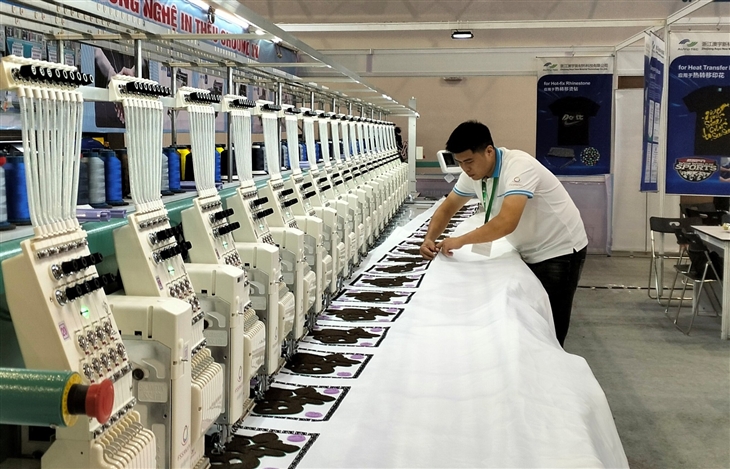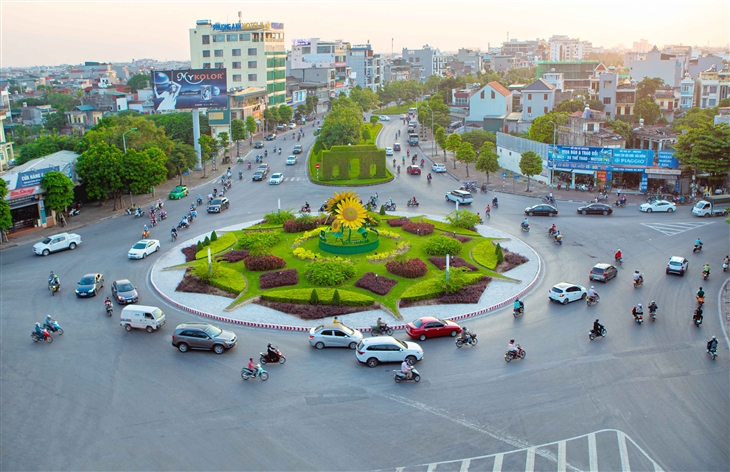Textile, garment sector prioritizes material development
Friday, May 31,2024
AsemconnectVietnam - The presence of domestic textile and garment enterprises in the global production chain has increased but remains incommensurate with their potential.
Dependence on imports
According to statistics from the Ministry of Industry and Trade (MoIT), domestic enterprises have to import about 70 percent of materials, mostly from China. Due to weaknesses in weaving and dyeing, the domestic textile and garment sector exports yarn and imports a large amount of fabric materials for production.
Pham Van Viet, Vice Chairman of the Ho Chi Minh City Textile, Garment, Embroidery and Knitting Association, said that domestic textile and garment companies have to import not only materials, but also specialized machinery, buttons, and other accessories. Products of the textile and garment supporting industry still lack a stable output market, discouraging investment in this field.
The textile and garment industry depends heavily on imports, with low added value, and lacks self-sufficiency in production. Therefore, the textile and garment supporting industry needs to be prioritized so that it can soon attract investment from multinational corporations to drive the formation of a system of supporting industry enterprises serving this sector.
Business support
In the strategy to develop the textile, garment, and footwear industries until 2030 with a vision to 2035, the MoIT has proposed technological innovation solutions, especially in weaving and dyeing, to promote the supporting industry for the textile and garment sector and gradually fill the supply shortage.
The textile and garment sector is coordinating with the MoIT to establish large industrial parks with wastewater treatment systems meeting environmental standards.
The MoIT has recently submitted a proposal to Deputy Prime Minister Tran Hong Ha regarding the revision of Decree 111/2015/ND-CP on the development of supporting industries. This draft revision includes many new policy incentives that have been proposed.
In addition to corporate income tax incentives, the draft revision of Decree 111/2015/ND-CP has developed various mechanisms and policies to help supporting industry enterprises enhance their competitiveness, meet the requirements of multinational corporations and companies producing finished products, and attract investment in the supporting industry sector.
According to the draft, the level of interest rate differential subsidy is set at three percent per year. Under this policy, each project will be eligible for this credit support only once during the same period if the project has not received any other state budget-funded credit support.
The duration of the Government’s credit support is equal to the loan term, but capped at a maximum of 10 years from the date of signing the loan contract. This credit support policy applies to loan agreements signed and disbursed up until the end of 2030. Priority will be given to supporting industry products in the fields of textiles and garments, leather and footwear, electronics, automotive manufacturing and assembly, mechanical engineering and manufacturing.
Source: Ven.vn
Vietnam's import-export and trade surplus in May and first 5 months of 2024
Goods export reach the finish line this year
DAILY: Vietnamese pepper prices rose by 3000 VND on May 30, 2024
DAILY: Vietnamese coffee prices increased by 3000 VND on May 30, 2024
Vietnam Business News May 30/2024
Vietnam rice market update: 8 million tonnes of rice for export
Total retail sales and consumer service revenue decreased slightly in May
Vietnam's main commodity export markets 4 months
Vietnam Business News May 29/2024
DAILY: Vietnamese pepper prices rose by VND3000-6000 on May 29, 2024
DAILY: Vietnamese coffee prices increased by 3000 VND on May 29, 2024
Positive recovery trend of import and export activities
Golden opportunity for Vietnamese businesses to export through e-commerce channels
Vietnam Business News May 28/2024

Plan of Hai Duong province for a period of 2021 - 2030, ...
Organize space reasonably and harmoniously, focusing on connecting Hai Duong in common development space, actively contributing to the ...Plan of Hau Giang province in a period of 2021 - 2030, ...
Sustainable forestry development program in a period of ...

12th-century ancient road unearthed at My Son Sanctuary
An ancient road dating back to the 12th century has freshly been discovered in an excavation on architectural ruins at the east side of ...Efforts made to seek UNESCO’s recognition for Con Moong ...
Vietnam Art Photo Contest and Exhibition 2024 to be held ...
Bas-relief featuring talks between Uncle Ho and soldiers ...



